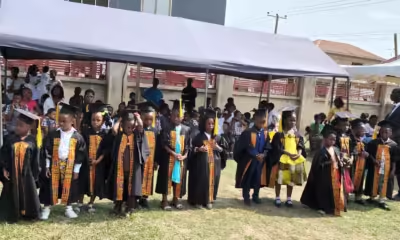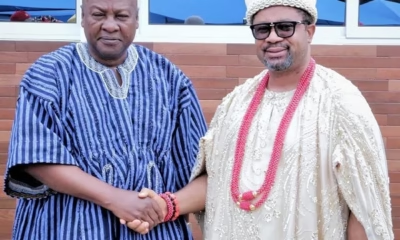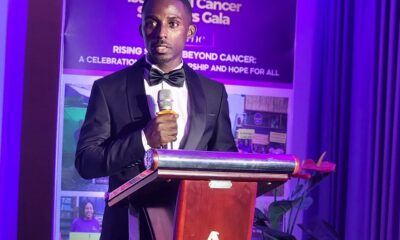News
We’ve paid research top-up allowances of 44 Colleges of Education – GTEC
Published
8 months agoon
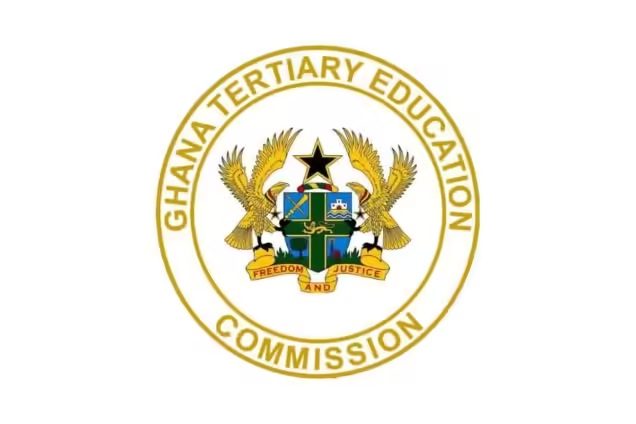
The Ghana Tertiary Education Commission (GTEC) has announced that it has taken steps to resolve some concerns of the Colleges of Education Teachers’ Association of Ghana (CETAG) to ultimately end their 2-month-old strike.
GTEC said it has paid top-up of the research allowance for 44 of the 46 Colleges of Education, except for McCoy and Dambai, which have some technical issues to be resolved.
“Also, the Commission said it has migrated 20 institutions and hopes to complete all 46 before the end of the month.”
“Again, as you are aware, the Commission has migrated 20 institutions as of today and hopes to complete all 46 before the end of the month. In addition, the top-up of the research allowance has been paid to 44 Colleges of Education except McCoy and Dambai, who have some technical issues to be resolved,” GTEC said.
This was contained in a press release signed by the Acting Director General of GTEC, Prof Ahmed Jinapor Abdulai on Friday, August 16.
Also, GTEC said it will soon communicate a decision on August salaries for CETAG members once the Education Minister, Dr Osei Adutwum, gives directives.
Meanwhile, the Commission said it was currently in talks with “the Honourable Minister of Education for financial clearance to be granted to GTEC to recruit some two thousand five hundred (2500) teaching staff to augment the current load for academic work to commence as quickly as possible while we work with CETAG to resolve their concerns.”
Regarding the call to close down the schools, the Commission said it has not received any directives, and as such, the schools should remain open.
On Wednesday, CETAG said it will not end its strike until the government shows concrete evidence of implementing payments to its members.
In a statement, the association recounted that over the years, each time the government promised to fulfill its end of the bargain, it consistently failed.
As such, learning from previous experiences, CETAG has decided to see proof of the government’s commitment before returning to work.
Background
On June 14, teachers in various colleges of education laid down their tools, demanding better working conditions and remuneration packages.
This action was a response to the government’s delay in implementing the National Labour Commission’s (NLC) Arbitral Award Orders and negotiated service conditions.
CETAG’s demands include the payment of one month’s salary to each member for additional duties performed in 2022, and the application of agreed rates of allowances payable to public universities to deserving CETAG members.
Source: www.myjoyonline.com/
You may like


Tooth decay cases rises in Tema


Cake Tekniks holds 59th graduation ceremony


Volta College Foundation donates GH¢9,000 to 9-yr-old fire victim


ICU holds Greater Accra regional youth, women confab


Beyond the cross: The role of women in Easter story


Empress Gifty to thrill patrons at MTN Stands In Worship on Easter Sunday

Dr Kakra Bonsu Appiah, Head of the Dental and Oral Surgery Department at the Tema General Hospital, says tooth decay has become the most common dental problem affecting residents of Tema.
Dr Appiah mentioned that there have been more patients reporting with cavities, toothaches, and other complications linked to poor oral hygiene.
He told the Ghana News Agency (GNA) in an interview that tooth decay was caused by the breakdown of the tooth’s structure due to acids produced by bacteria in the mouth, which thrive on sugary foods and poor brushing habits, making good oral hygiene practices essential in preventing the disease.
“The most common cause of dental caries is poor oral hygiene. When you look at how dental caries form, you will understand that poor oral hygiene is the leading cause of dental caries; it is about leaving food debris around the teeth,” he stated.
Dr Appiah explained that many of the cases presented at the hospital could have been avoided through regular brushing, proper diet, and timely dental check-ups, emphasising that maintaining oral health was not just about having clean teeth but also plays a critical role in overall well-being.
He advised residents to brush their teeth at least twice a day with fluoride toothpaste, floss regularly to remove food particles between teeth, and reduce the intake of sugary snacks and drinks, as well as visit the dentist twice a year.
The dentist also expressed concern that people only visited the hospital when the pain became unbearable, urging Ghanaians to visit the dentist regularly to prevent emergencies.
Dr Appiah further appealed to parents to educate children on good oral hygiene practices from an early age and reduce their intake of sugary foods. —GNA
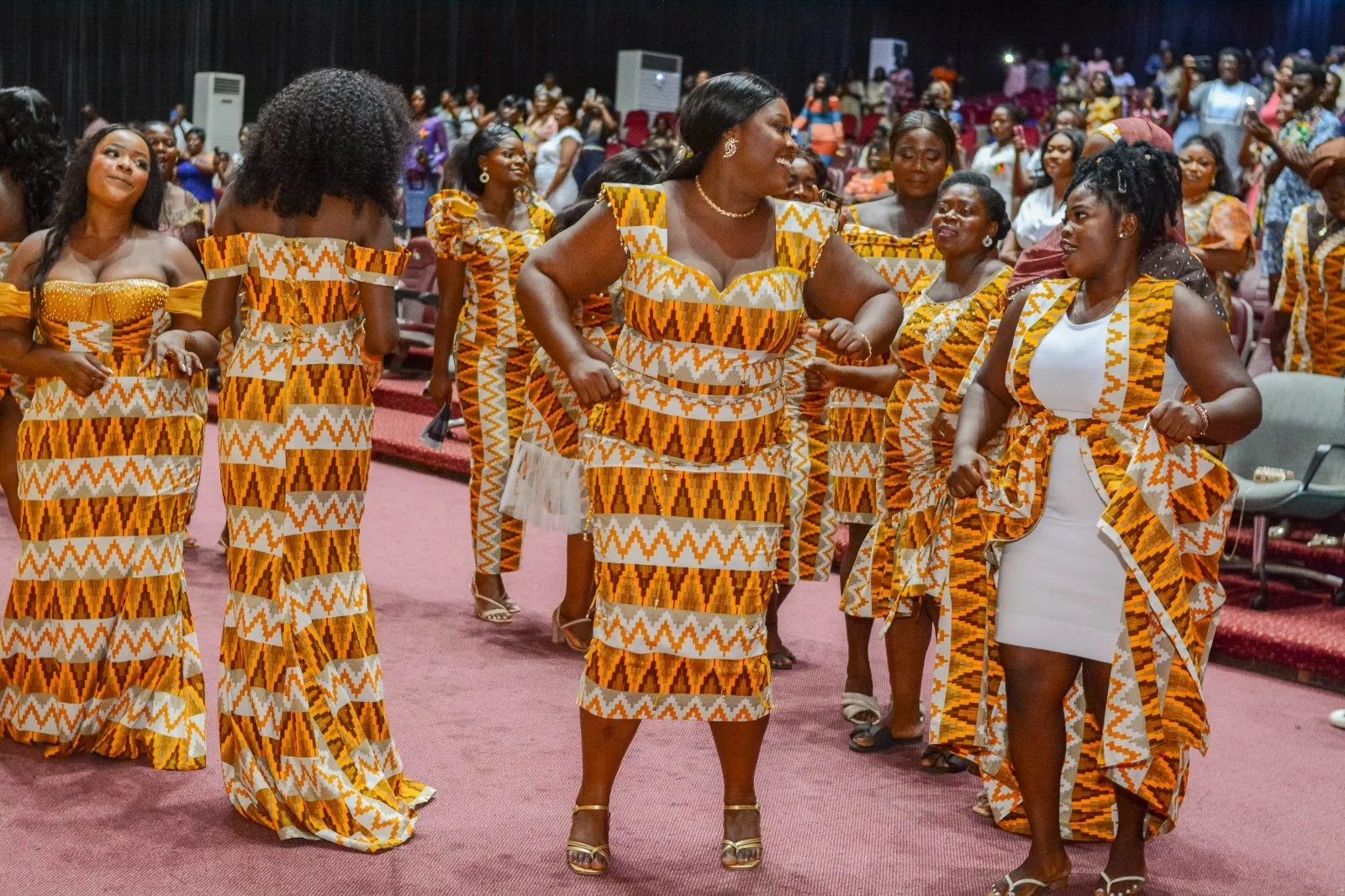
About 30 students on Sunday graduated from the 59th graduation ceremony of Cake Tekniks International, a privately-owned modern cake designing and sugar craft school in Accra.
During the ceremony, all graduates were presented with certificates while 13 of them also received professional diploma.
The founder of Cake Tekniks International, Mrs Jane Addo, said her outfit was dedicated to providing world standard skills, knowledge and hands-on training necessary for one to succeed worldwide in the culinary industry.
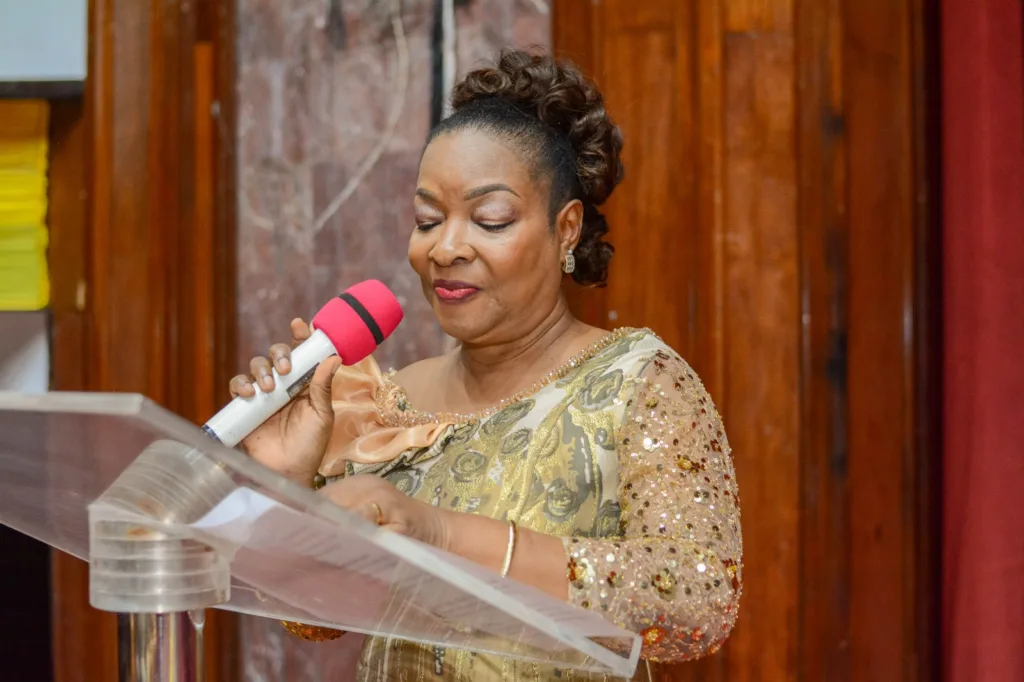
She encouraged the students to embrace the opportunities, challenges and experiences, mindful of the fact that they are well-equipped.
“Hold your heads up while you build a goodwill between your clients and yourselves,” she added.
Mrs Addo said the school was passionate about fostering the culture of creativity, motivation and excellence with the belief that every student had the potential to make a lasting impact in the culinary world.
The founder and leader of QA Consult, Mr Johnson Opoku-Boateng, said graduation was a witness to the unveiling of talents, passion and hard work and testament to months of dedication and hands-on-learning.
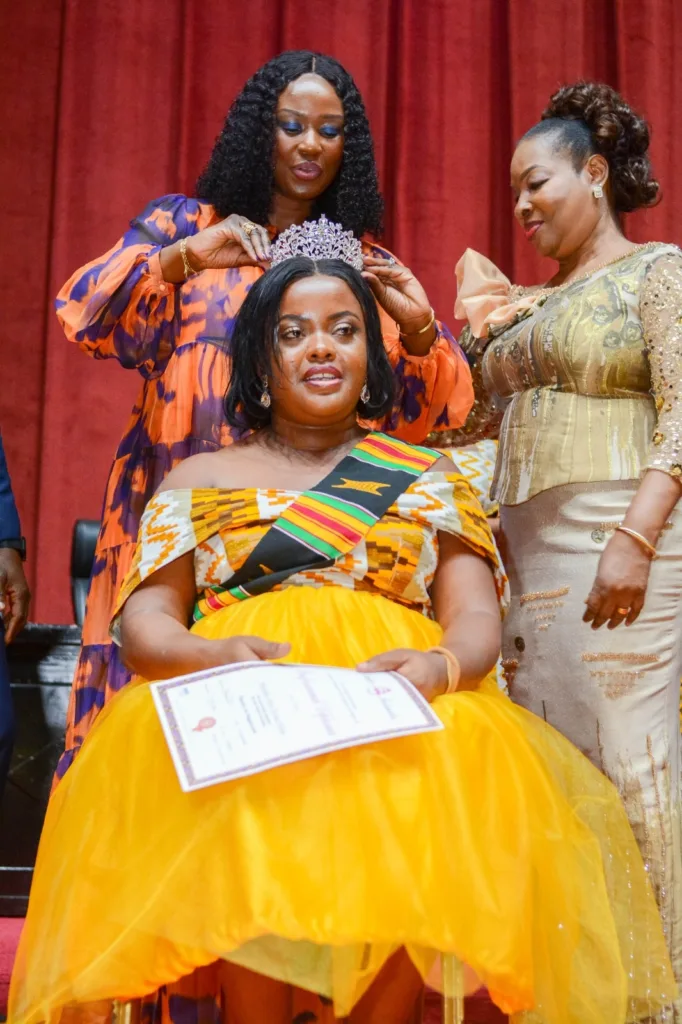


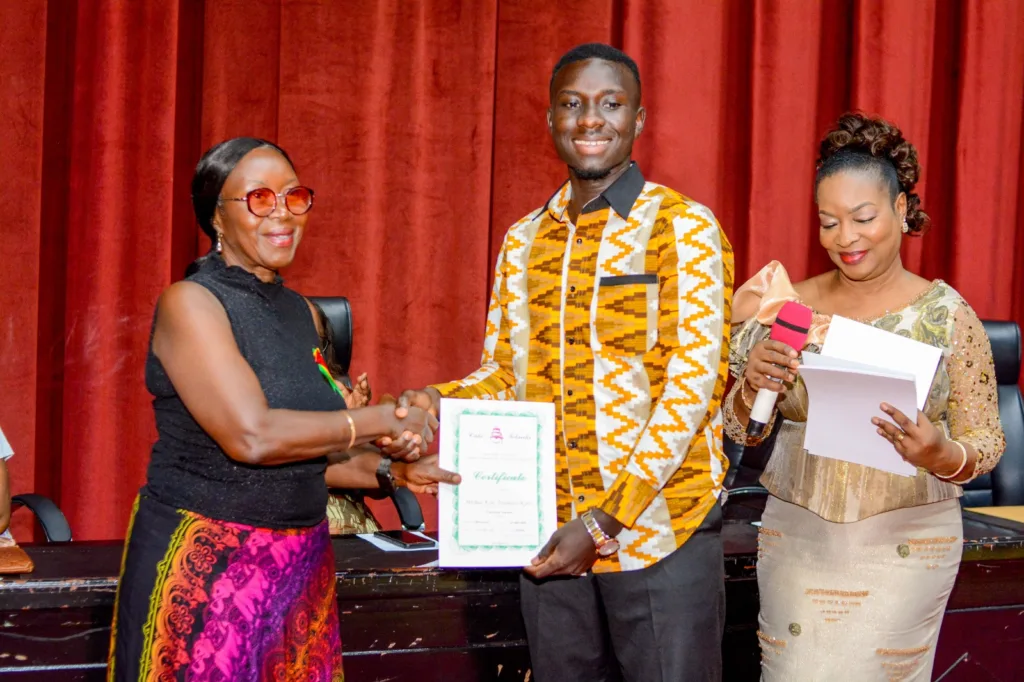

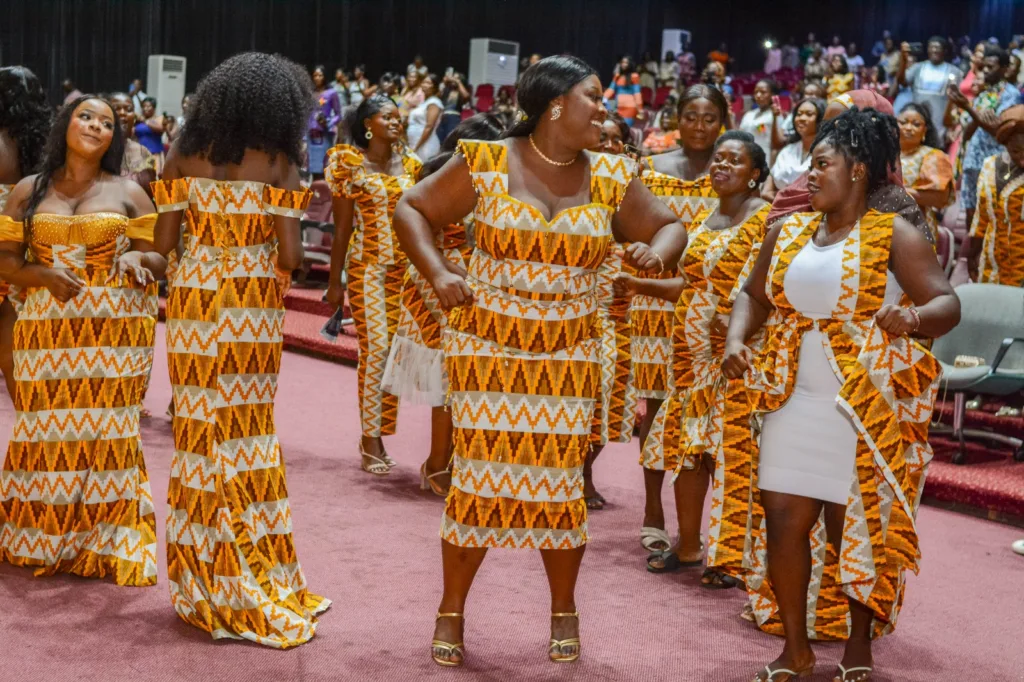
He urged the graduands to ensure that their cakes were safe and good for human health and that their success would be dependent on how well they serve, create and grow.
The event also saw the exhibition of cakes and pastries by the students.


receiving her certificate

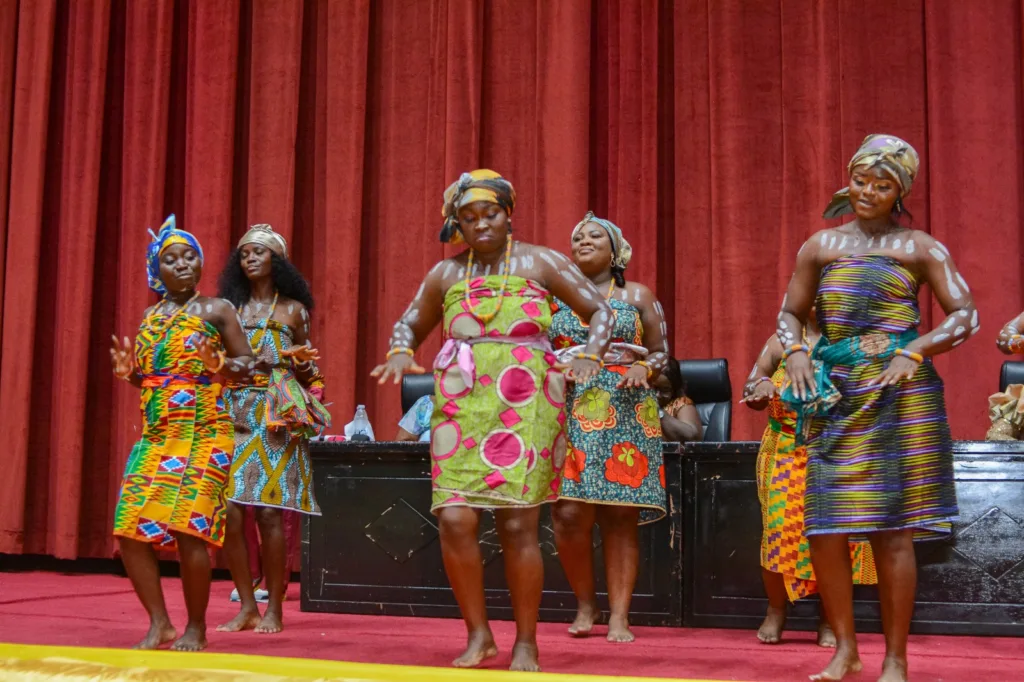
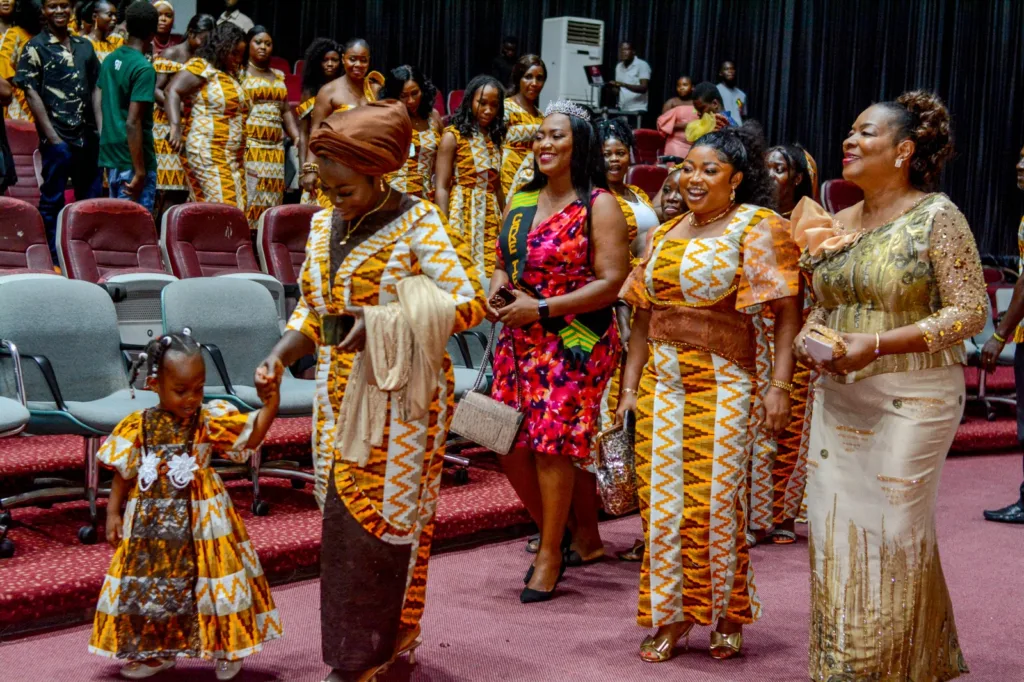
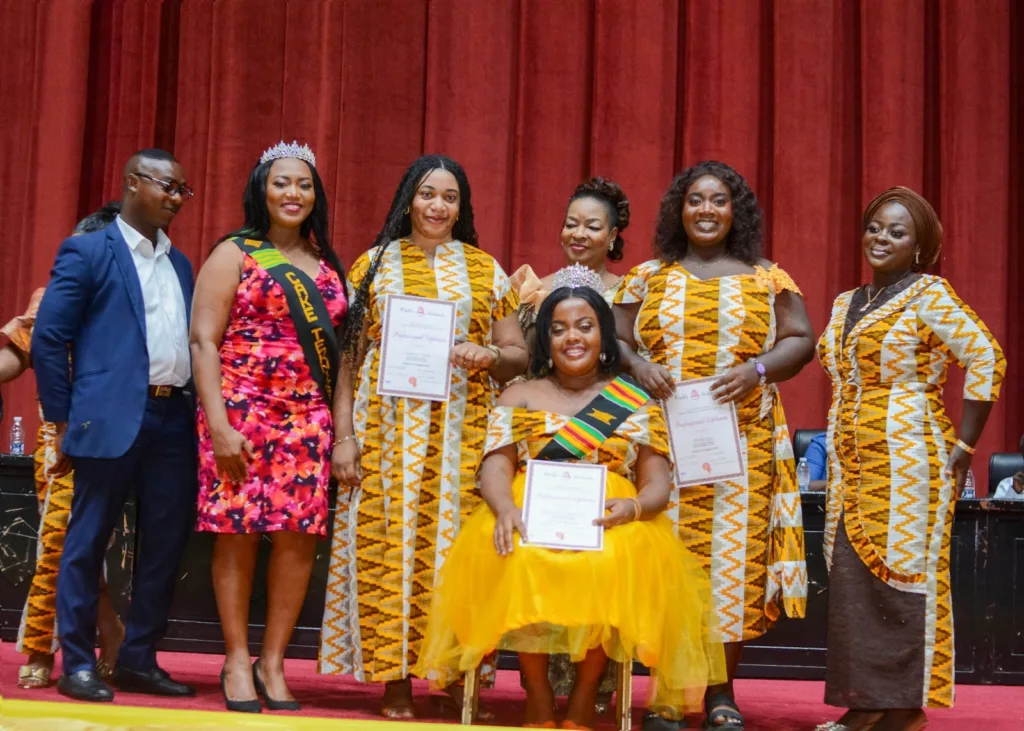
News
Volta College Foundation donates GH¢9,000 to 9-yr-old fire victim
Published
14 hours agoon
April 19, 2025
A delegation from the Volta College Foundation, a non-governmental organisation, has donated GH¢9,000.00 to the family of nine-year-old Victoria Atsoribo, who suffered severe burns in a fire accident at home.
The donation was made at the Korle-Bu Teaching Hospital, where Victoria is currently on admission and undergoing treatment.
Led by women’s organiser of the foundation, Madam Mawulawoe Amedorme and Deputy PRO, Ms Rebecca Gollo, the delegation said the NGO launched a support campaign for Victoria, with the aim to ease the financial burden on Victoria and her family.
Madam Amedorme said “thanks to the overwhelming generosity of our members and the general public, we were able to raise funds to support her treatment and recovery.”
Receiving the donation, Victoria’s uncle, Mr Bright Danquah Dumevi, expressed gratitude to the leadership and members of the foundation for their kindness and support.
He said Victoria was transferred from Margaret Marquart Hospital in Kpando to Korle Bu Teaching Hospital in Accra for specialised care.
According to Mr Dumevi, Victoria was currently undergoing planned staged skin grafting (surgery) as part of her treatment.
Your kind gesture has made a profound impact on her recovery journey, bringing hope and joy to her healing process.
He said the contributions from the foundation will help in taking care of Victoria’s bills, adding that “your support has alleviated a significant portion of the financial burden associated with her treatment, allowing her family to focus on her recovery.
He also appealed to the general public, benevolent individuals, and organisations to continue extending their support to Victoria to aid her recovery.

Tooth decay cases rises in Tema

Cake Tekniks holds 59th graduation ceremony

Volta College Foundation donates GH¢9,000 to 9-yr-old fire victim
Trending

 Politics7 months ago
Politics7 months agoVoter Register Discrepancies: NDC to stage nationwide protests against EC

 News8 months ago
News8 months agoArise Royals Montessori School Marks 2nd Graduation.

 Entertainment9 months ago
Entertainment9 months agoGhanaian musician Champions Gaza Peace with New Track

 News4 months ago
News4 months agoKing of Igbo Community in Ghana congratulates Mahama as President-elect of Ghana.

 More8 months ago
More8 months agoYoung people urged to develop their talents

 Entertainment10 months ago
Entertainment10 months agoSteps to receive an official GWR certificate – Details from mother of a Ghanaian record holder

 News10 months ago
News10 months agoCancer Support Network Foundation holds gala

 Tech9 months ago
Tech9 months agoWatch out for sharks: The bizarre history of internet outages














